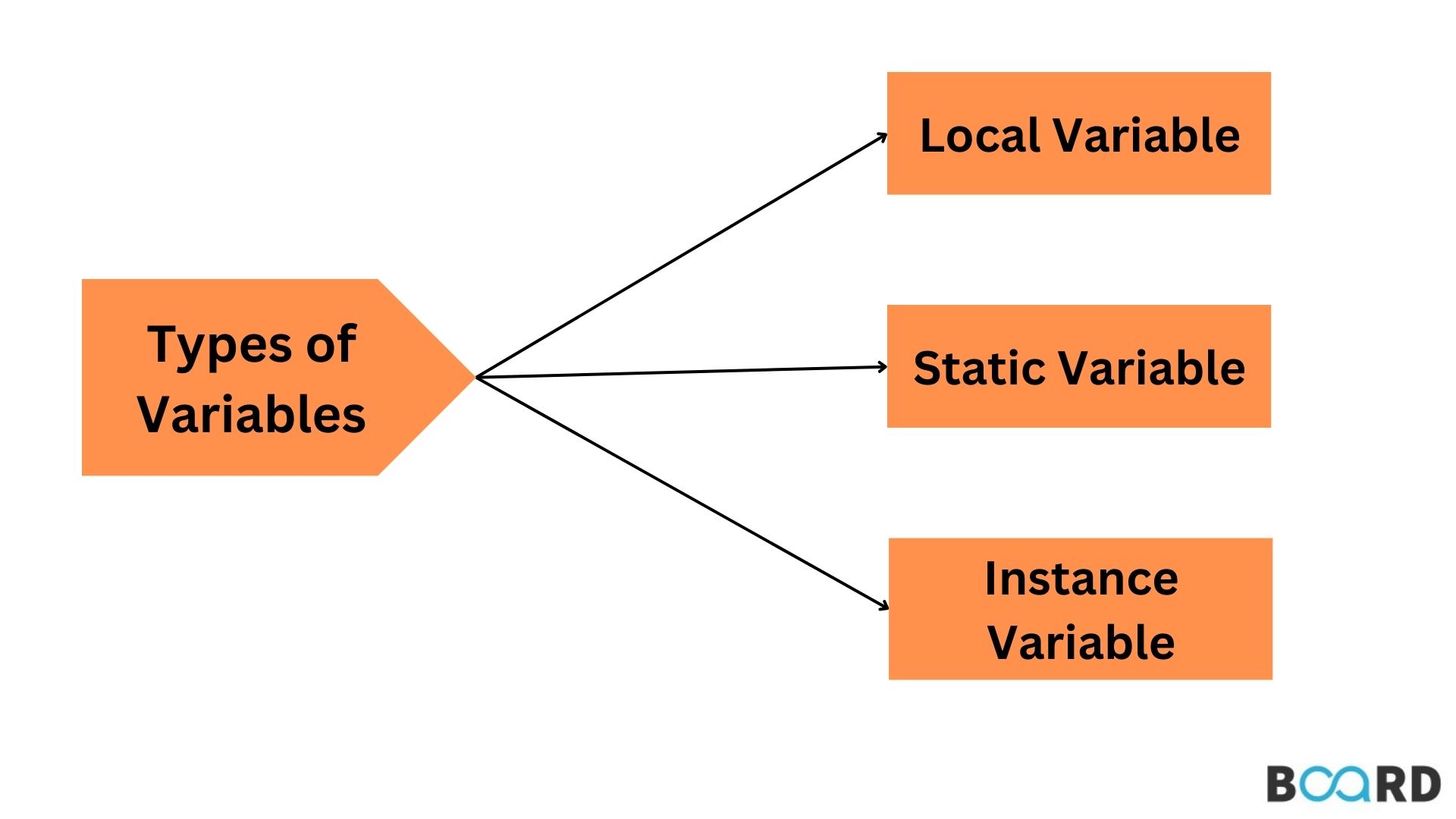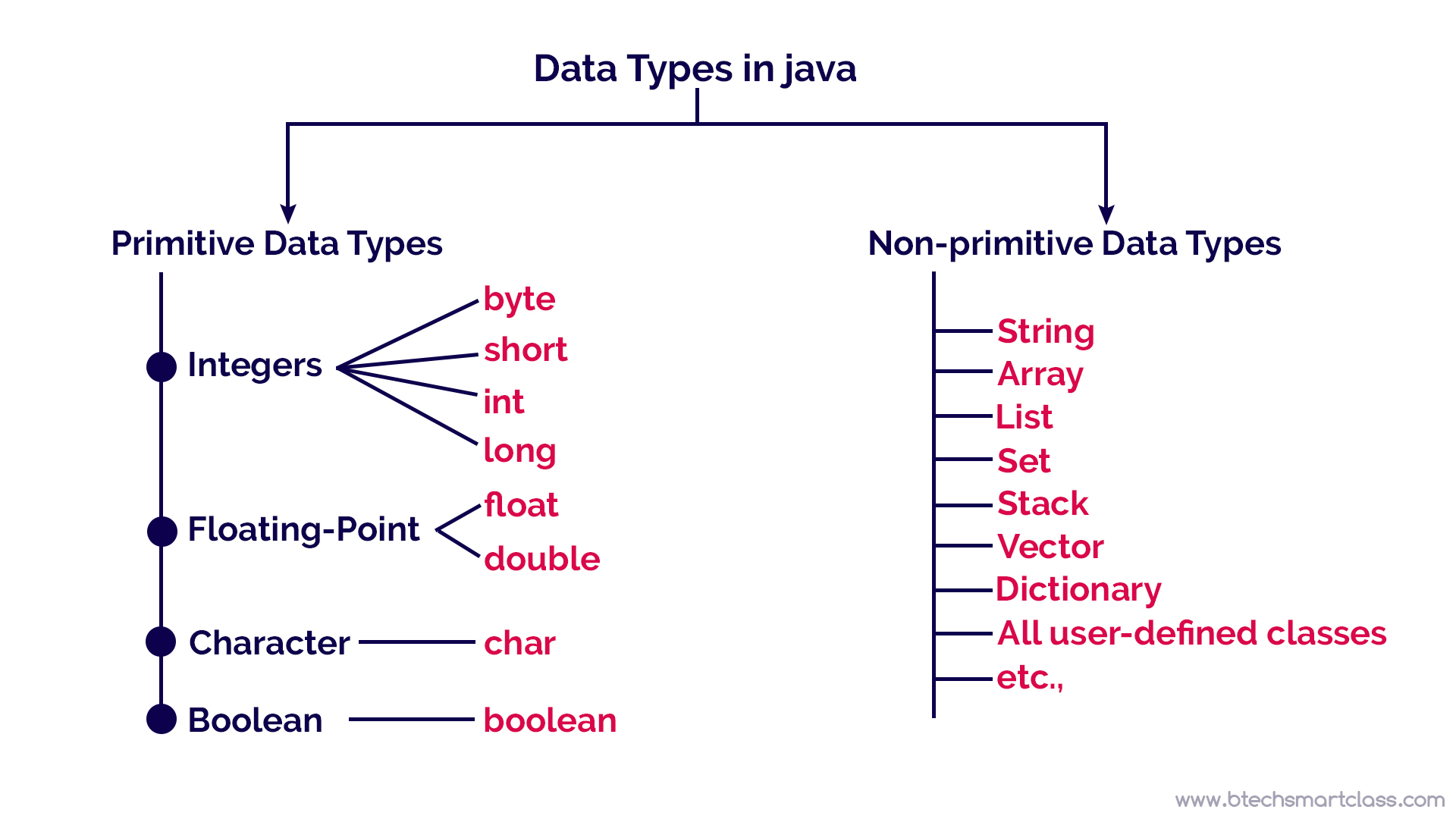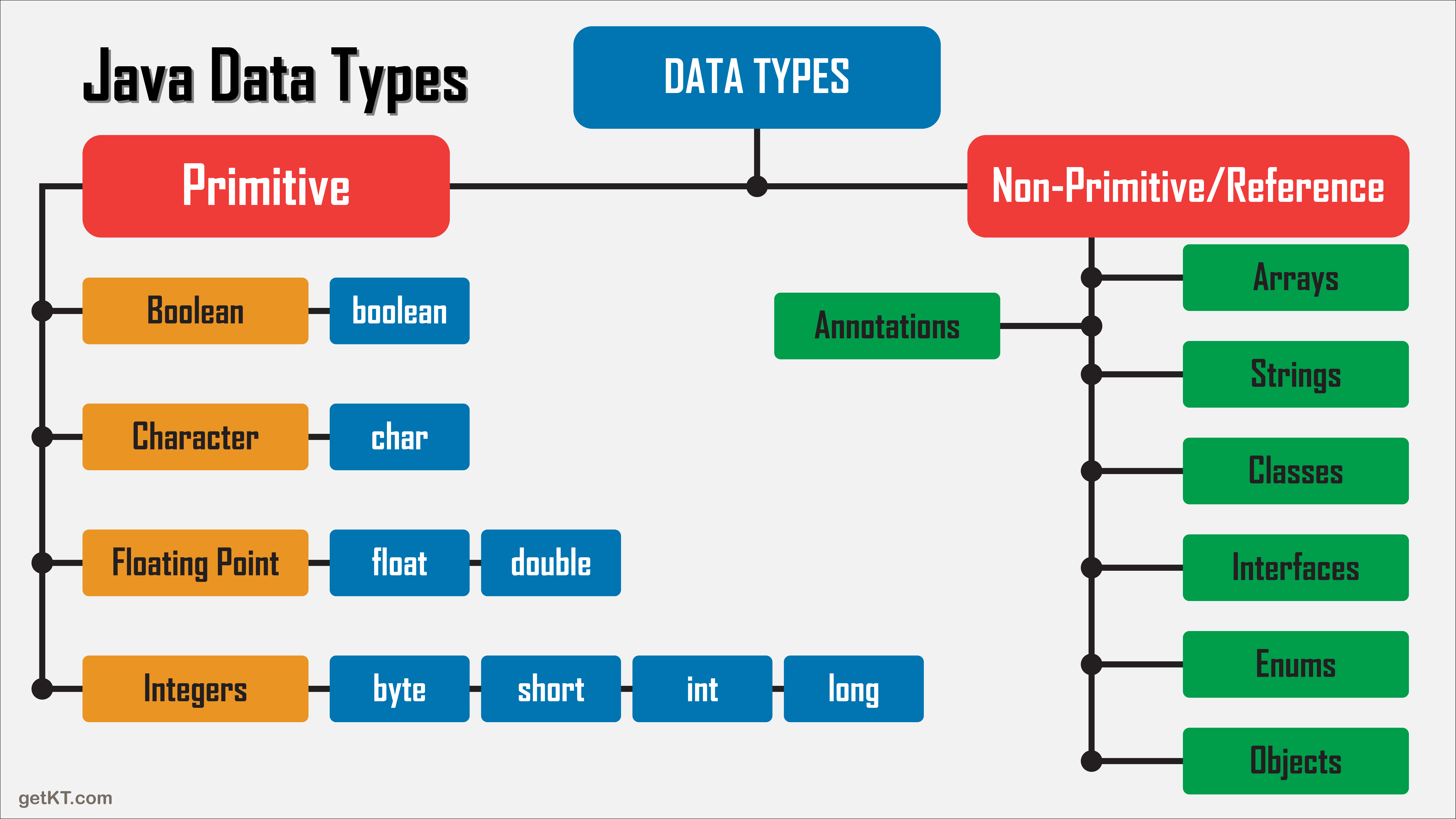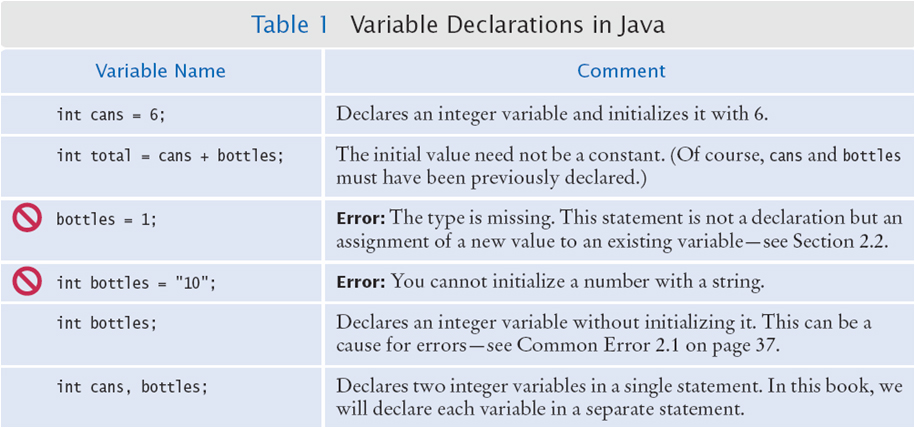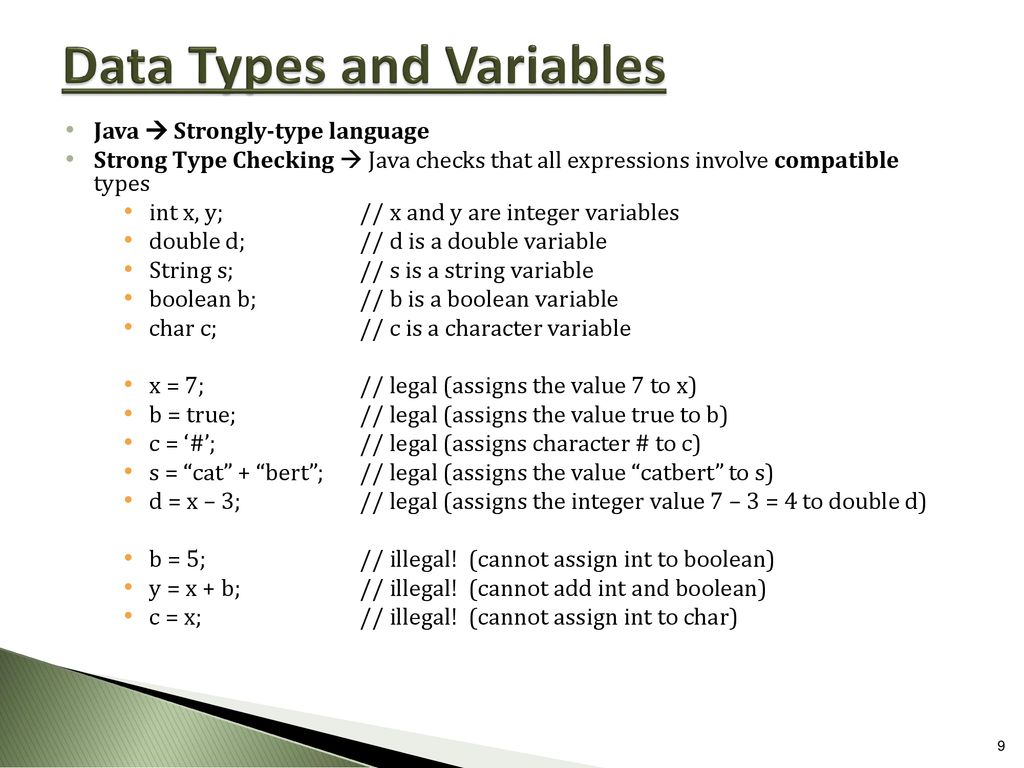Antwort What are the 4 types of variables in Java? Weitere Antworten – What are the 4 variables in Java
Java Variables
- String – stores text, such as "Hello".
- int – stores integers (whole numbers), without decimals, such as 123 or -123.
- float – stores floating point numbers, with decimals, such as 19.99 or -19.99.
- char – stores single characters, such as 'a' or 'B'.
- boolean – stores values with two states: true or false.
There are three different types of variables in Java, we have listed them as follows:
- Local Variables.
- Instance Variables.
- Static Variables.
There are 8 Primitive data types in Java – Boolean, char, byte, int, short, long, float, and double. In this article, we'll cover the Jump Statements in Java, such as break, continue and return, along with examples and explanations. The below article covers the iteration statements or loops in Java.
What are local and global variables in Java : Local variables are declared within specific blocks of code and have limited scope, existing only within their block. Global variables, declared outside of any function, are accessible from any part of the program and persist throughout its execution.
Are there 4 types of variables
You can see that one way to look at variables is to divide them into four different categories ( nominal, ordinal, interval and ratio). These refer to the levels of measure associated with the variables.
How to declare 4 variables in Java : To declare (create) a variable, you will specify the type, leave at least one space, then the name for the variable and end the line with a semicolon ( ; ). Java uses the keyword int for integer, double for a floating point number (a double precision number), and boolean for a Boolean value (true or false).
An experimental inquiry typically has three main types of variables: an independent variable, a dependent variable and controlled variables.
Primitive Data Types. The eight primitives defined in Java are int, byte, short, long, float, double, boolean and char. These aren't considered objects and represent raw values. They're stored directly on the stack (check out this article for more information about memory management in Java).
What are the 9 data type in Java
Data types are divided into two groups: Primitive data types – includes byte , short , int , long , float , double , boolean and char.Key Difference Between Local Variables and Global Variables
Local variables are defined inside a function or block, whereas global variable is defined outside of all functions or blocks. Local variables exist only during the function's executions, while global variables remain in memory for the duration of the program.Example. If you create a variable with the same name inside a function, this variable will be local, and can only be used inside the function. The global variable with the same name will remain as it was, global and with the original value.
Four-Variable Model, illustrated in Figure 1, describes the required system behavior, including the required timing and accuracy, as a set of mathematical relations on four sets of variables-monitored and controlled variables and input and output data items.
What are the 4 kinds of variables and their uses : Introduction to Types of Variables in Statistics
Such variables in statistics are broadly divided into four categories such as independent variables, dependent variables, categorical and continuous variables. Apart from these, quantitative and qualitative variables hold data as nominal, ordinal, interval and ratio.
How to add 3 variables in Java : Sum of THree Numbers
- public class Main{
- public static void main (String[] args) {
- int num1=7;
- int num2=9;
- int num3=123;
- int sum=num1+num2+num3;
- print("the sum is ");
- println(sum);
What are variables in Java with examples
A variable can be thought of as a container in which information of a given type can be stored. Examples of these different types include text ( String ), whole numbers ( int ), floating-point numbers ( double ), and whether something is true or false ( boolean ).
You can see that one way to look at variables is to divide them into four different categories ( nominal, ordinal, interval and ratio). These refer to the levels of measure associated with the variables.Here is the list of some of the common types of data structures in Java:
- Array.
- Linked List.
- Stack.
- Queue.
- Binary Tree.
- Binary Search Tree.
- Heap.
- Hashing.
What are the four main data types : What are Types of Data in Statistics
- Nominal data.
- Ordinal data.
- Discrete data.
- Continuous data.




